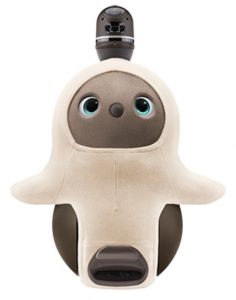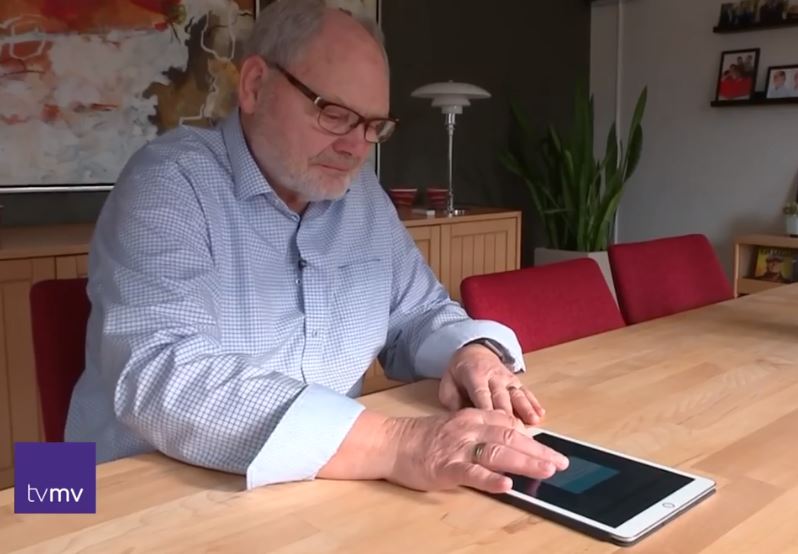Webinar Tuesday, July 21, 2020
9:00 AM to 10:00AM Pacific
12:00 PM to 1:00 PM Eastern
18:00 to 19:00 Central European
Webinar Tuesday, July 21, 2020
9:00 AM to 10:00AM Pacific
12:00 PM to 1:00 PM Eastern
18:00 to 19:00 Central European
Transatlantic Telehealth Research Network (TTRN) & Citris UC Berkeley Summer Institute will be held virtually August 9 – 11 and August 24 – 26, 2020. You can still sign up for the course.
The 2020 topics include research methods and approaches for health informatics, tele- and digital-health, plus a special focus on data science, real-world evidence, robotics, artificial intelligence, machine learning, predictive analytics, and associated data governance and ethical-legal issues.
2020 Program Chair: Katherine Kim.
Scientific Program Committee: Birthe Dinesen, Nick Anderson, Kristian Kidholm, David Lindeman, and Student Representative Cynthia Matsumoto.
Read more at this link: summerinstitute.faculty.ucdavis.edu/2020-program/
Direct any questions to personalizedhealth@ucdavis.edu
Webinar Tuesday, June 23, 2020
9:00 AM to 10:00AM Pacific
12:00 PM to 1:00 PM Eastern
18:00 to 19:00 Central European
Webinar Tuesday, May 26, 2020
9:00 AM to 10:00AM Pacific
12:00 PM to 1:00 PM Eastern
18:00 to 19:00 Central European
Abstract: Brain–computer interfaces (BCIs) can be used in neurorehabilitation; however, the literature about transferring the technology to rehabilitation clinics is limited. A key component of a BCI is the headset, for which several options are available.
The aim of this study was to test four commercially available headsets’ ability to record and classify movement intentions (movement-related cortical potentials—MRCPs). Twelve healthy participants performed 100 movements, while continuous EEG was recorded from the headsets on two different days to establish the reliability of the measures: classification accuracies of single-trials, number of rejected epochs, and signal-to-noise ratio. MRCPs could be recorded with the headsets covering the motor cortex, and they obtained the best classification accuracies (73%-77%). The reliability was moderate to good for the best headset (a gel-based headset covering the motor cortex). The results demonstrate that, among the evaluated headsets, reliable recordings of MRCPs require channels located close to the motor cortex and potentially a gel-based headset.

LOVOT is a social robot developed by Groove X in Japan. In March Laboratory for Welfare Technologies was about to begin to test the LOVOT with citizens with dementia at nursing homes in Aalborg, Viborg and Skive Municipality in Denmark as the first place in the world. LOVOT was brought to the nursing homes and ready to interact with the citizens. Unfortunately, Covid-19 started spreading, causing Denmark to go into lockdown and stopped us from testing LOVOT at the nursing homes. This has brought us in quite a unique situation: LOVOT being in lockdown together with citizens with dementia at the nursing homes. We are therefore excited to see how LOVOT will interact with the citizens in a lockdown period. The nursing homes now report back that the citizens have enjoyed the LOVOT and it has created joy and a lot of smiles for the citizens with dementia. We have postponed our scientific test supported by the National Health Authorities (Sundhedsstyrelsen) in Denmark to the fall 2020.
Læs kort skriv om forskellen på de to begreber ved Birthe Dinesen, professor og leder af Laboratorie for Velfærdsteknologi – Telesundhed & Telerehabilitering, Institut for Medicin og Sundhedsteknologi, Aalborg Universitetet
Reza Naeemabadi, PhD student at Laboratory for Welfare Technology, Aalborg University, has published a study aimed to identify patients’ requirements after a total knee replacement following a self-training rehabilitation program, leading to the design and development of a telerehabilitation program.
Telerehabilitation programs can be employed to establish communication between patients and healthcare professionals and empower patients performing their training remotely. Let us hope it will be used more in the future.
You can see and read the paper here.
I forskningsprojektet Future Patient – Telerehabilitering af patienter med atrieflimren har vi fået udviklet 3 animationer om atrieflimren, som bruges i undervisningen af patienter og pårørende på HjertePortalen.dk – se teaser herunder:
I aftes blev forskningsprojektet Future Patient – telerehabilitering af patienter med atrieflimren vist på TV Midt/Vest – klik på billedet for at se indslaget:

Projektet er et samarbejde mellem Hjerteafdelingen på Regionshospitalet Viborg og Skive, sundhedscentre i Viborg og Skive kommuner, Hjerteforeningen, Psykologisk Institut, Aarhus Universitet, DTU og Laboratoriet for Velfærdsteknologi, Institut for Medicin og Sundhedsteknologi på Aalborg Universitet.
Projektet er støttet af Aage og Johanne Louis-Hansens Fond.